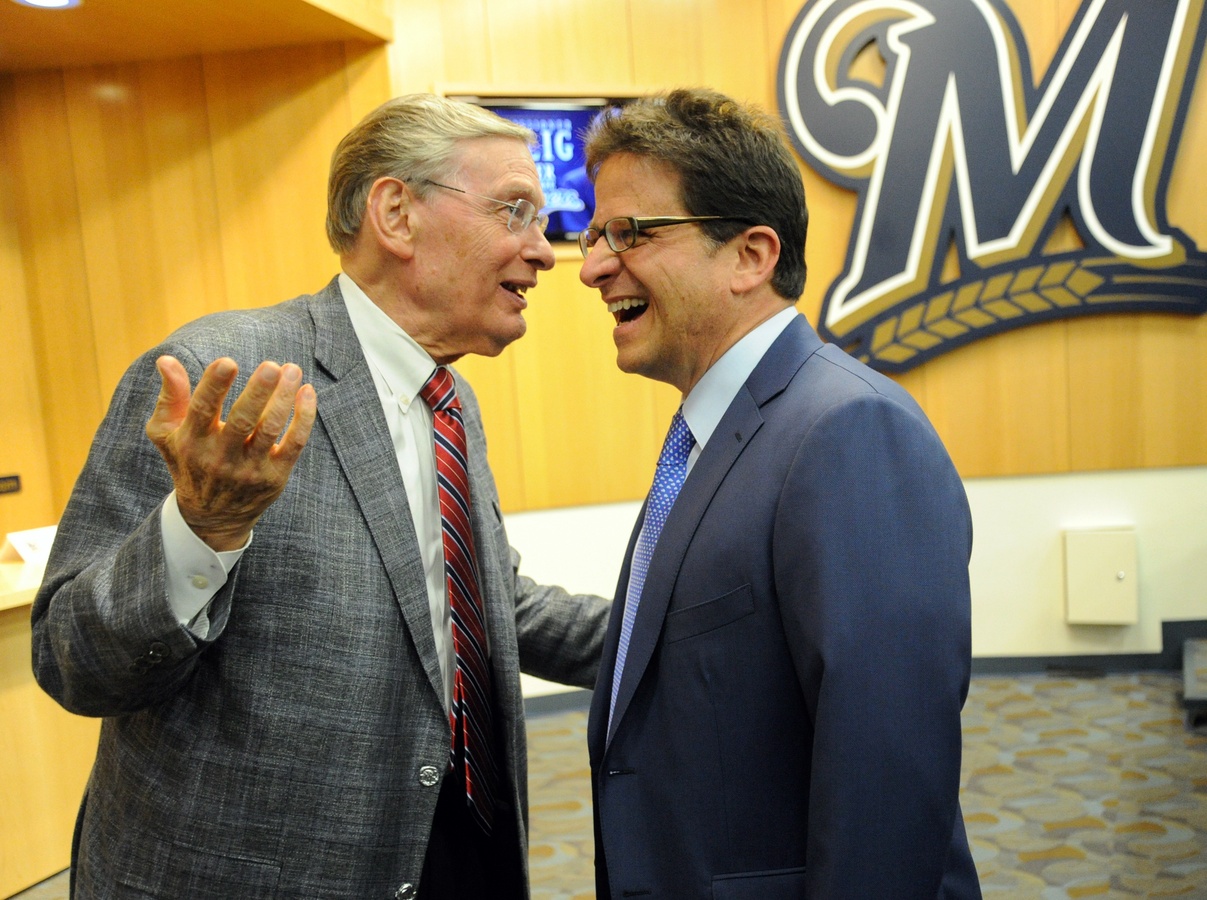While payroll is not the only—or even ultimate—determining factor in a team’s success, the ability to spend a lot of money on players undoubtedly helps. That financial flexibility can be utilized in multiple ways; smart teams will spend millions on both impact free agents and locking up their young players. Organizations such as the Tampa Bay Rays and Oakland Athletics have proven that a huge payroll is not a requirement for winning, but it certainly does make the task easier.
The recent explosion in the size of regional television contracts has meant that a team’s local TV contract is an increasingly large percentage of its overall income. As one would expect, the larger contracts are from larger markets. However, another significant factor in the size of a team’s contract is when it was signed.
According to information from the Milwaukee Journal-Sentinel, the Brewers signed their television contract in 2009—the height of the most recent recession, and before teams like the Dodgers, Rangers, and Astros signed their billion-dollar deals. Both the economic climate that depressed baseball’s revenue and the club’s unfortunate timing shoehorned the Brewers into an unfavorable deal.
A 2009 article from the New York Times pinpoints the extent to which sports were unexpectedly impacted by the global recession, and baseball was no exception. Commissioner Bud Selig himself commented to Bill Shaikin of the Los Angeles Times that he “used to think [they] were recession-proof,” so the fact that the sport did have to adjust came as a surprise. With hindsight, it is clear that teams that negotiated their new television contracts during that window did not maximize their revenue. Oakland (2009) joined Milwaukee in poor timing and was also victimized by a bad deal.
This has significantly changed the Brewers’ ability to compete. Baseball has a significant amount of revenue sharing that is designed to alleviate some of the problems that arise when big-market teams bring in significantly more money than do small-market teams, but the system is not designed to totally level the playing field the way a salary cap is. Instead, the Brewers—and similar small-market teams—have had to operate under a completely different paradigm.
Brewers’ owner Mark Attanasio has acknowledged this division between rich and poor. On Opening Day 2015, he called the increasing payrolls of the sport’s upper class both “‘mind-boggling’ and frustrating,” thus giving at least a tacit admission that his team struggles to compete with those bringing in a significantly larger amount of money. Part of this problem, of course, is his own team’s underwhelming television revenue, which is not simply a function of market size. After all, the Twins and Indians play in small markets as well, but their television contracts are substantially larger.
This cannot and should not be a death knell for the franchise. Teams with small payrolls have always competed, and they will continue to do so. It simply requires operating under a different set of rules. The Brewers will not have a huge financial blanket to fall back on, so they have to succeed in different ways. The path to winning without money is no secret: Drafting and developing young, cost-controlled players enables a team to field a competitive roster without carrying a massive payroll. But how does a team in the smallest media market in MLB make even enough money to augment a farm system?
Attanasio himself provided the answer. In the same Opening Day press conference referenced above, he explained how the Brewers’ excellent attendance has helped buoy the organization. Fans have gone to Miller Park at an astounding rate given the relative size of Milwaukee, which has enabled the Brewers to boast a mid-tier payroll over the past few years despite all of the team’s built-in disadvantages.
However, the idea that winning boosts attendance is well-respected fact, and the Brewers have won more in the past few years than they figure to over the next few. They won 96 games and the NL Central in 2011, and they subsequently ranked 10th in payroll and 11th in attendance in 2012. Their dismal performance thus far in 2015 does not bode well for the turnout next year.
Ultimately, the solution to the problem of the local television contract is relatively simple. The Brewers need to field a roster of cheap, talented players in order to compete. However, this issue is more pressing now than it was several years ago because they—unlike many other teams in baseball—will not be bailed out by a shocking new influx of money.
Lead photo courtesy of Benny Sieu-USA TODAY Sports

I don’t have much sympathy for owners who might lose a little money on a baseball team when they all have a net worth close to a billion dollars or more.
Now if they open up the books and let us see all the red-then maybe I would feel differently. I just feel that they have a responsibility to the fans to field a competitive team.
If that means spending some money then do it. And if you end up with a bad contract-oh well, it’s a sunk cost (it’s not like there’s a salary cap in MLB).
What’s $10 million here, or $10 there for billionaire owners? Cost of doing business-especially if the team is still making a profit!!!
But what is their actual dollar amount when revenue sharing is taken into account. Is not the actually dollar figure for a team like the brewers almost 100 million dollars?
I know a couple of years ago, I saw figures showing the Brewers are in no financial difficulties. When the national broadcast contract is figured in, the payroll at that time was covered without a single ticket, beer, hot dog, parking ticket, or souvenir being sold. Now, with the greatly depleted team most likely resulting in a far lower payroll, ownership will be rolling in dough from ticket sales, etc.